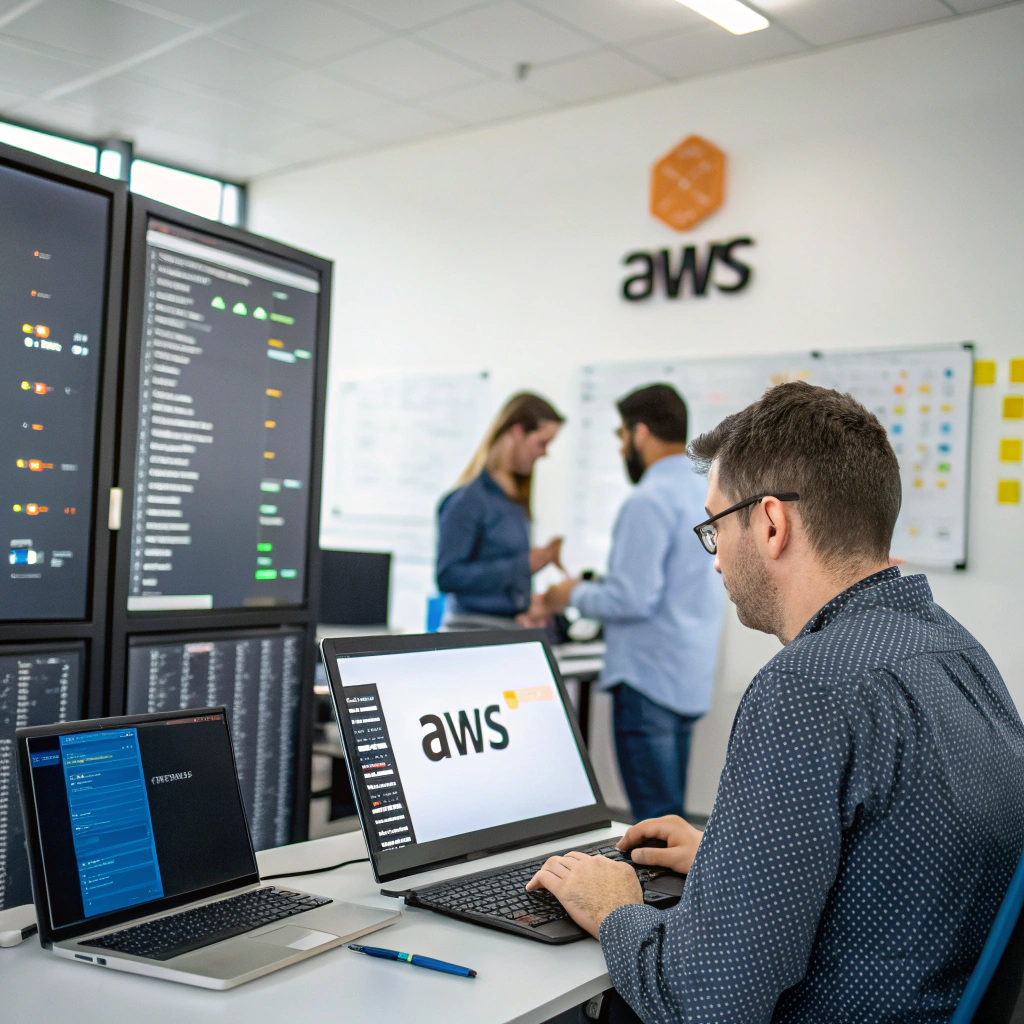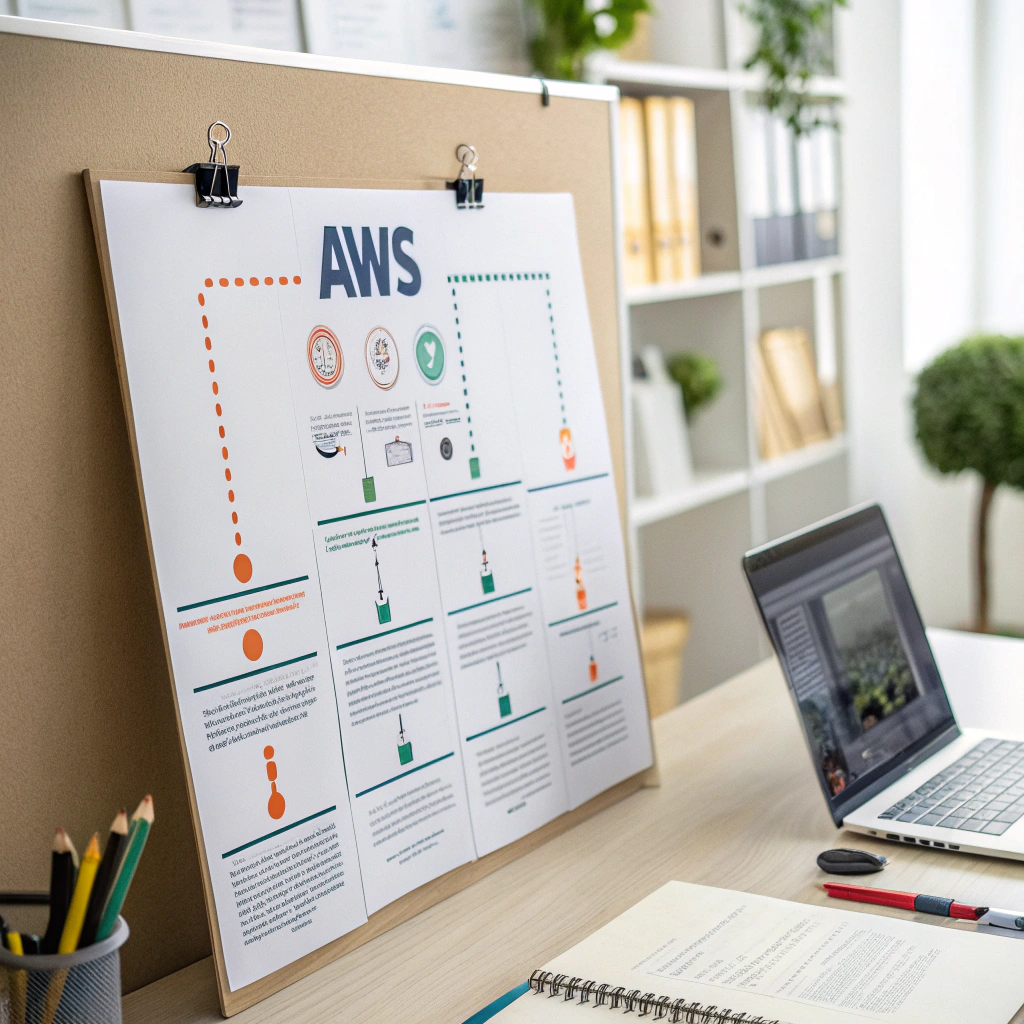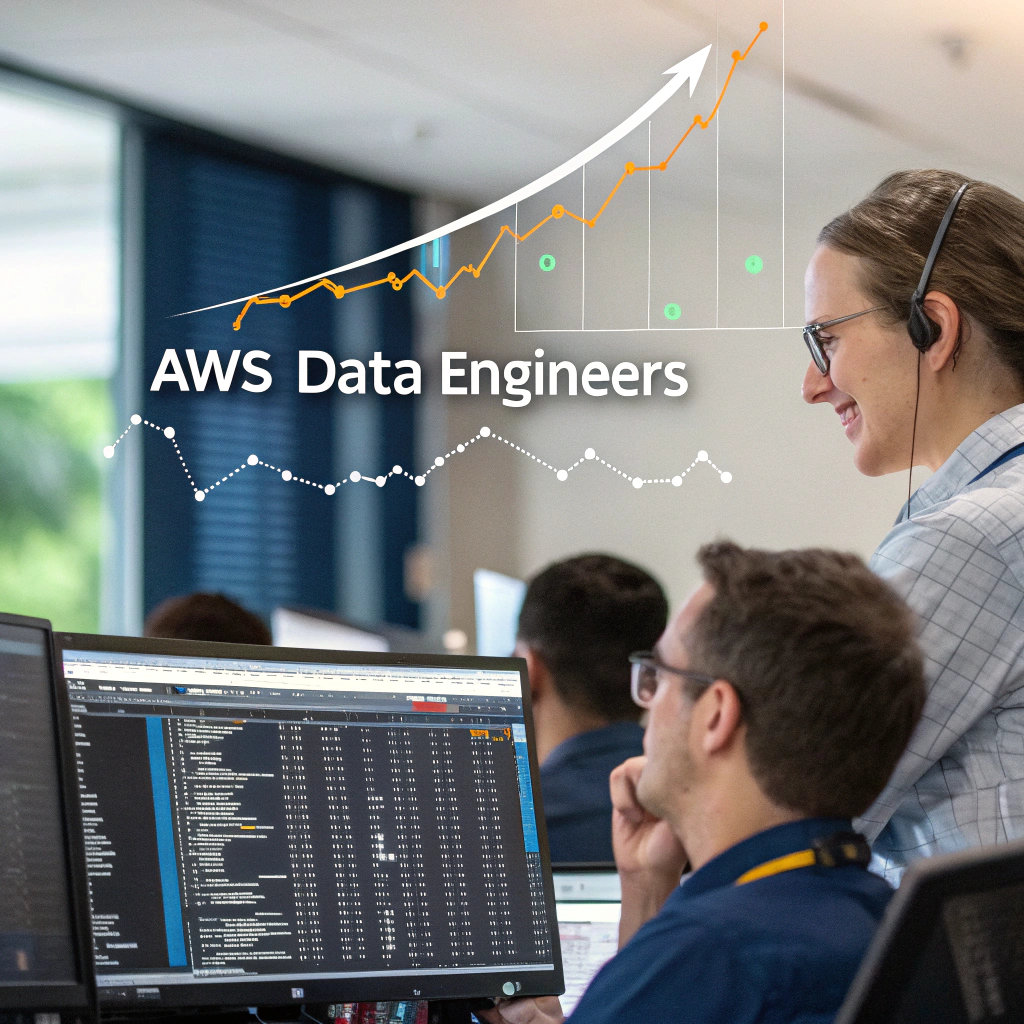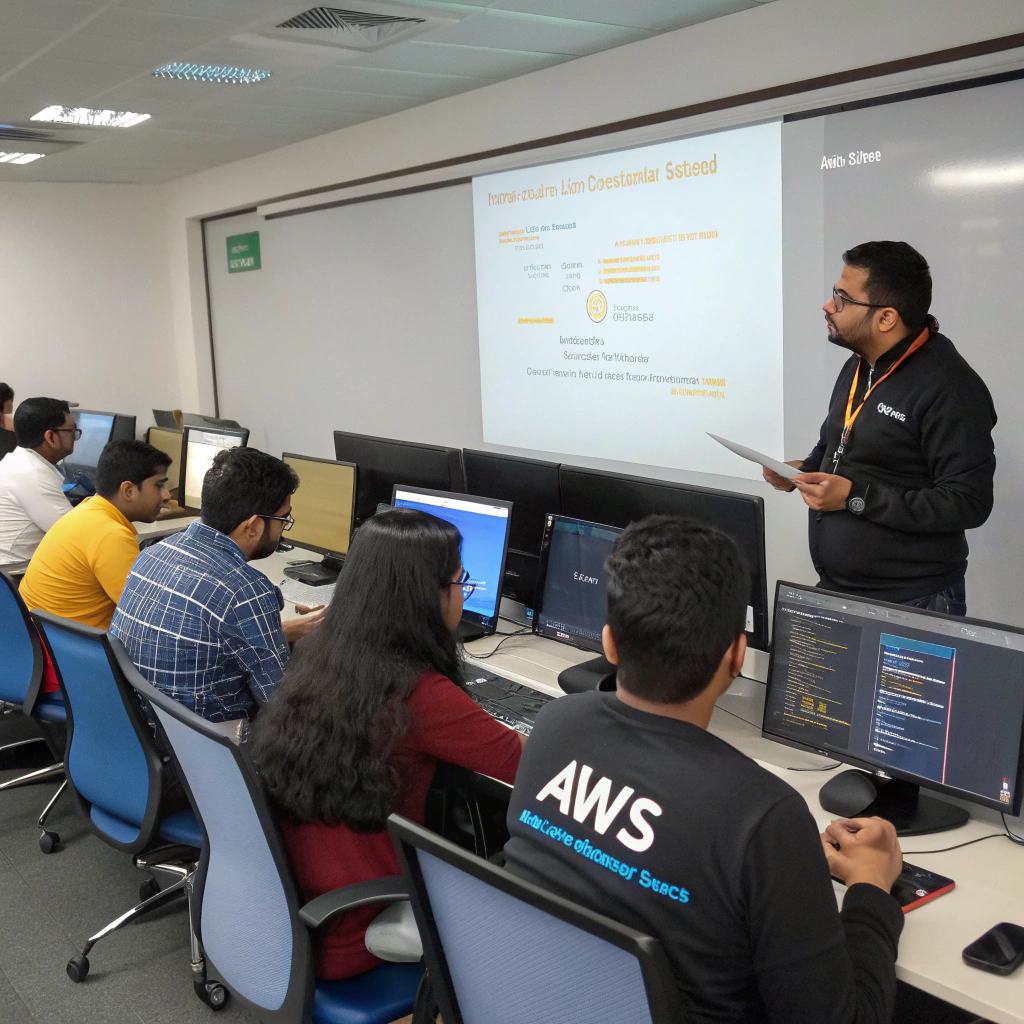How to Become an AWS Data Engineer Career Guide 2025

Introduction
In today’s data-driven economy, businesses across the globe are leveraging Amazon Web Services (AWS) to store, process, and analyze massive volumes of information. This growing dependence on cloud platforms has skyrocketed the demand for AWS Data Engineers — specialists who design and maintain cloud-based data pipelines, ensure seamless data integration, and enable organizations to make data-backed decisions. If you’ve ever wondered how to become an AWS Data Engineer, this guide will walk you through the skills required, career roadmap, certifications, job opportunities, and salary insights. Whether you’re a fresher, IT professional, or career changer, the AWS Data Engineer career path offers rewarding growth, stability, and global opportunities.
Why Choose AWS for a Data Engineering Career?
AWS dominates t he cloud computing market with a share of nearly 31% (Statista, 2025), serving top companies like Netflix, Airbnb, LinkedIn, and NASA. Organizations trust AWS for:
he cloud computing market with a share of nearly 31% (Statista, 2025), serving top companies like Netflix, Airbnb, LinkedIn, and NASA. Organizations trust AWS for:
Scalability – Handle terabytes to petabytes of data effortlessly.
Advanced Tools – Services like Amazon Redshift, Glue, Kinesis, and EMR.
Cost Efficiency – Pay-as-you-go model, reducing infrastructure costs.
Security & Compliance – Trusted by financial and healthcare industries.
Learn more on AWS Global Cloud Infrastructure
Check latest Cloud Market Share Data on Statista
For data engineers, AWS offers a playground of cutting-edge technologies to build real-time, batch, and hybrid data pipelines.
What Does an AWS Data Engineer Do?
An AWS Data Engineer is responsible for:
Designing Data Pipelines – Moving raw data from multiple sources (databases, IoT devices, APIs, logs) into AWS.
Data Transformation – Cleaning, structuring, and enriching data using ETL tools like AWS Glue or Apache Spark on EMR.
Data Storage – Organizing data in S3 buckets, data lakes, or Amazon Redshift warehouses.
Performance Optimization – Ensuring low-latency queries and cost-efficient storage.
Collaboration – Working with data scientists, analysts, and business stakeholders.
Automation – Implementing CI/CD for data pipelines using AWS CodePipeline and Lambda.
Simply put: they make raw data usable for analytics and business intelligence.
Step-by-Step Roadmap
How to Become an AWS Data Engineer
1. Build a Strong Foundation in Data Engineering Basics
Before diving into AWS-specific tools, you need to master:
Programming Languages: Python, Java, or Scala.
Databases: SQL (MySQL, PostgreSQL) and NoSQL (MongoDB, DynamoDB).
Data Modeling: Normalization, denormalization, schema design.
ETL Concepts: Extraction, Transformation, and Loading of data.
Resource: SQL for Data Engineers
2. Learn AWS Core Services
Focus on services essential for data engineering:
Storage: Amazon S3 (data lake), Amazon RDS, DynamoDB.
Compute: EC2, Lambda (serverless), EMR (big data clusters).
Data Integration: AWS Glue, Kinesis (real-time), Data Pipeline.
Data Warehousing: Amazon Redshift.
Monitoring: CloudWatch, IAM (security).
3. Gain Hands-On Experience with Projects
Practical skills matter more than theory. Some project ideas include:
Real-time streaming pipeline using Kinesis + Lambda + Redshift.
Batch ETL pipeline with AWS Glue + S3 + Athena.
IoT data processing using AWS IoT Core + EMR.
Building a company-wide data lake on AWS S3.
4. Get Certified
AWS Certifications enhance credibility. Start with:
AWS Certified Data Engineer – Associate (2025 Update) (new specialized certification)
AWS Certified Solutions Architect – Associate
AWS Certified Big Data – Specialty (retired, replaced by Data Engineer track)
Check: AWS Certification Roadmap
5. Develop Complementary Skills
To stand out, learn:
Big Data Tools: Apache Spark, Hadoop, Kafka.
Data Visualization: Tableau, Power BI, QuickSight.
Machine Learning Basics: AWS SageMaker integration.
DevOps Practices: CI/CD pipelines for data workflows.
6. Apply for Jobs & Build Your Career
Once skilled, apply to roles like:
AWS Data Engineer
Cloud Data Engineer
Big Data Engineer
Data Platform Engineer
Top employers include Accenture, TCS, Deloitte, Capgemini, Infosys, and global giants like Netflix and Amazon.
Salary Trends for AWS Data Engineers
Salaries vary based on experience, location, and certifications.
India: ₹7–18 LPA (entry to mid-level); ₹25+ LPA (senior).
USA: $95,000 – $150,000/year (average $125,000).
UK: £50,000 – £80,000/year.
Remote Roles: Highly lucrative for skilled professionals.
Resource: Glassdoor AWS Data Engineer Salaries
Career Growth Path
An AWS Data Engineer can progress into roles such as:
Senior Data Engineer
Data Architect
Cloud Architect
Machine Learning Engineer
Chief Data Officer (CDO)
This career path offers both technical mastery and leadership opportunities.
Challenges You’ll Face
Rapid Tech Evolution: Constantly updating skills.
Complex Security Models: Data governance on AWS.
High Learning Curve: Balancing multiple services.
Cost Optimization: Avoiding unnecessary AWS bills.
But overcoming these challenges makes you a highly valuable asset in the tech world.
Future of AWS Data Engineering
With AI, ML, and IoT fueling massive data growth, AWS Data Engineers will remain in high demand for the next decade. Gartner predicts that by 2030, 80% of enterprises will adopt cloud-native data platforms — and AWS will lead this transformation.
How Cambridge Infotech Can Help You Become an AWS Data Engineer
At Cambridge Infotech, we specialize in career-focused IT training designed to help students and professionals excel in cloud and data engineering. Our AWS Data Engineer programs include:
Instructor-led training by industry experts.
Hands-on labs with real AWS projects.
Certification preparation support.
Career counseling and job placement guidance.
Whether you’re just starting your career or planning a transition, Cambridge Infotech equips you with the skills needed to thrive in this high-demand field.
Tips to Succeed as an AWS Data Engineer
Practice daily on AWS free tier and sandbox environments.
Stay updated with AWS re: Invent announcements.
Join AWS user groups and online forums.
Network on LinkedIn and GitHub.
Never stop learning — cloud evolves constantly.
FAQs
1. Do I need coding skills to become an AWS Data Engineer?
Yes, strong coding skills in Python and SQL are essential for data manipulation and ETL pipelines.
2. Is AWS Data Engineering good for freshers?
Yes. With the right training and projects, freshers can start as Junior Data Engineers and grow into senior roles.
3. How long does it take to become an AWS Data Engineer?
On average, 6–12 months of consistent learning and project work is enough to become job-ready.
4. Which AWS certification is best for Data Engineers?
The AWS Certified Data Analytics – Specialty is the most relevant certification.
5. Can I switch from software development to AWS Data Engineering?
Absolutely. Many software developers transition into data engineering with additional cloud skills.
6. What skills are needed in how to become an AWS Data Engineer?
To learn how to become an AWS Data Engineer, focus on Python, SQL, AWS Glue, Redshift, and data modeling.
7. Can a fresher learn how to become an AWS Data Engineer?
Yes, freshers can follow a structured path on how to become an AWS Data Engineer with certifications and real projects.
Final Thoughts
Becoming an AWS Data Engineer is one of the most rewarding career choices in today’s tech landscape. With the right mix of AWS expertise, data engineering skills, and certifications, you can secure a high-paying job and grow into leadership roles.
At Cambridge Infotech, we train aspiring professionals to master cloud, data, and AI technologies to stay ahead in the competitive job market. If you’re serious about learning how to become an AWS Data Engineer, now is the time to start.
Want Hands-On AWS Data Engineering Experience?
Book Your FREE Demo Class Today!
Live Session with AWS Certified Trainers
Real-World Project Walkthrough
Q&A on Career Opportunities
Exclusive Course Preview
Click Here to Reserve Your Spot
Call us now at – 099024 61116
Visit our Website: cambridgeinfotech.io/
Check Out Related Blogs
Best Courses to Learn for the Future: Top 6 Future-Proof Skills
Best Reasons to Learn Artificial Intelligence – Boost Your Career & Skills in 2025








